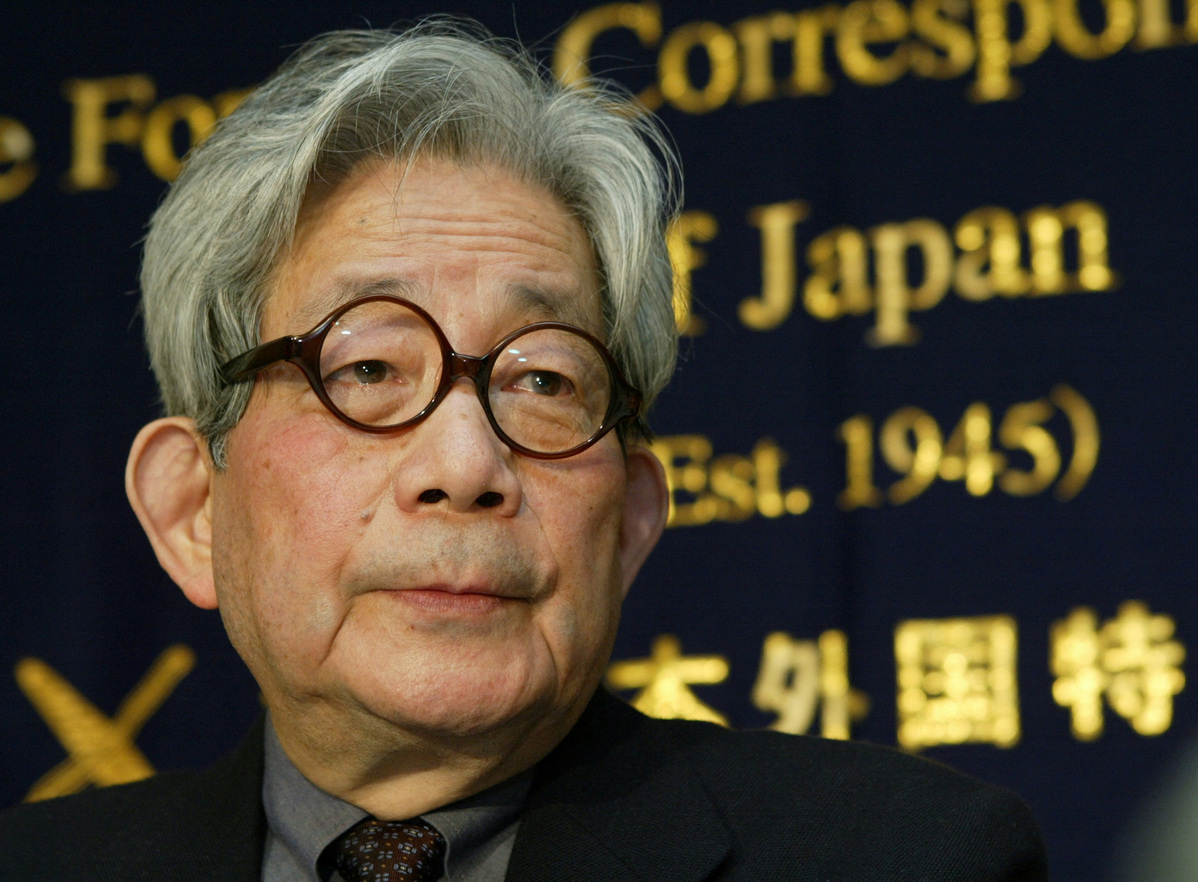Oe's spirit should be commemorated


Young people in both Japan and China should read Japanese Nobel literature laureate and committed pacifist Kenzaburo Oe and commemorate his spirit, experts said at a seminar in Beijing on Wednesday.
Several Chinese and Japanese scholars recalled how relevant Oe's works were even today at the seminar, organized jointly by the Chinese Association for Japanese Studies and the Institute of Japanese Studies of the Chinese Academy of Social Sciences. Oe, a Japanese literary giant, died on March 3 aged 88. His works encompass a wide range of themes, from being anti-militarist to being against the US-Japan security treaty. As a novelist, he expressed concerns for Japanese society, history, nationality and other issues, displaying an intellectual's conscience and sense of responsibility.
The seminar commemorated Oe as a pacifist who firmly upheld Japan's pacifist Constitution. Participants said Oe respected history, loved peace and had made great contributions to enhancing friendship and cultural exchanges between China and Japan.
Gao Hong, head of the Chinese Association for Japanese Studies, said the spirit of Oe will never die. Oe participated in pro-peace activities and co-founded the Article 9 Association. He wished to see a final reconciliation between Japan and China, and hoped Japanese people, especially the youth, grew up to be peace lovers.
Gao said that Oe's advocacy was commendable after the end of the Cold War, when Japanese society was seeing a reemergence of nationalism and the political right. He said Oe's spirit can awaken Japanese people's conscience and stop Japan from repeating history.
Yang Bojiang, director-general of the Institute of Japanese Studies at the Chinese Academy of Social Sciences, said that Oe was a guardian of pacifism and a whistle-blower in Japan after World War II. "He had a keen sense of responsibility for mankind and integrated his works and important global issues together," Yang said.
Oe reflected on Japan's history of aggression. Given that Japan is undergoing its most strategic transformation since World War II, Oe's anti-war attitude showed his strong sense of social responsibility, humanity and conscience.
Wu Huaizhong, deputy director of the Institute of Japanese Studies at the Chinese Academy of Social Sciences, said Oe's pro-peace spirit does not belong to any one country, but to all humanity. It is important to commemorate his pursuit of peace at a time when Japan is adjusting its security strategies and diplomatic policies.
In the 45th anniversary of China-Japan Treaty of Peace and Friendship, the two countries should carry forward and promote Oe's spirit, work together to bolster peaceful development, stand on the right side of history and strive to build a China-Japan relationship fit for the new era, Wu said.
































